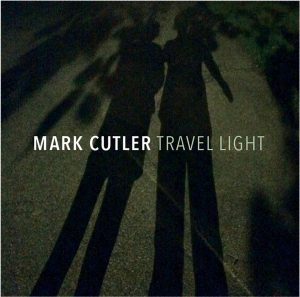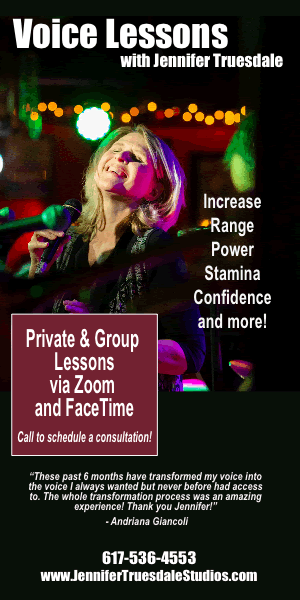 Mark Cutler’s latest album Travel Light marks another fine release from this Rhode Island roots rocker. Here, he’s as smooth as Jack Daniels at the microphone. The musicians around him create a weave of rustic, acoustic notes and snaky electric instrumentation. Together, it’s a strong package of music from an Americana singer-songwriter who just keeps getting better and better.
Mark Cutler’s latest album Travel Light marks another fine release from this Rhode Island roots rocker. Here, he’s as smooth as Jack Daniels at the microphone. The musicians around him create a weave of rustic, acoustic notes and snaky electric instrumentation. Together, it’s a strong package of music from an Americana singer-songwriter who just keeps getting better and better.
Opening cut “Two Hours To Go” is a lilting, breezing tune with an easygoing vibe. Cutler’s alluring vocal timbre and measured delivery keep it intriguing. Throwing in an acoustic guitar strum and a swinging groove, Cutler keeps the music in motion, like it’s taking us somewhere special. Beyond these musical accomplishments, the singer-songwriter presents an adventurous attitude that might remind of some of rock’s greatest heroes.
“Nothing From Nobody” continues that air of individual freedom and spirited adventure. Cutler’s attitude carries the most weight here, and he makes a fine example of someone who can live and breath the life he sings of. His slight swagger at the microphone is authentic. A persistent electric guitar humming and winding around the groove motion builds an aggressive vibe that suggests no prisoners will be taken on this personal life quest.
“Go With The Flow” does indeed have a flow. Cutler’s voice glides in measured doses over a restless groove and acoustic guitar march. He’s as cool as the bass line that oozes the low end motions as smoothly as anything that rides on ice. When an electric guitar begins crackling, the tune emits another layer of cool that just can’t be beat. We feel a 1960s laidback vibe and a feeling of acceptance of how all of the moving parts in this crazy, messed up world of ours have a life of their own.
“The Other Shoe” has more of a greasy edge, thanks to its electric guitar presence. An acoustic guitar makes a circular motion, like that something that doesn’t want to resolve itself. A swirling organ line and a sly fiddle line help complete the musical support. Cutler then opines quietly but persistently about the things that can wrong even as we anticipate the calamity. His natural cool comes across well, giving this tune a personality all its own, a sprawling attitude and a sprawling musical landscape to boot.
“What About You” is a quiet, rootsy piano ballad. Cutler’s raw, raspy voice fills the soundscape in this paired down number. He might remind of Tom Petty or Tom Waits singing of the sorry facts of life. A seesawing harmonica line ups the ante, making this song full of emotive suggestion. Perfectly crafted, this number carries all of its moving parts with a swaggering grace and with the kind of inner peace that comes from being world weary for too long.
Cutler contemplates the self-head game, the way we all have of freaking ourselves out in “Gaslight.” His witty observations are accompanied by musicianship so subtle you have to listen for it but would leave the song horribly naked if it wasn’t there. An acoustic guitar melody spirals upward and then back on itself so that the lyrical theme feels unresolved. This beefs up the lyrical theme beautifully while make the song move with a rustic, roots charm.
“It Goes Like This” features a pedal steel melody whose notes ring out with a beautiful authenticity. A hefty organ presence and a brisk electric guitar give Cutler a platform to deliver his heartfelt philosophy. Amongst many natural and rustic notes, this singer captures perfectly the feeling of being resigned to fate. He delivers it by wrapping his voice around every nuanced feeling his words and music conjure.
Chugging in more speedily, “I Killed A Man” becomes a fiercely honest murder ballad. A shuffling groove and mighty acoustic guitar strum backed by a muscular electric make one feel the urgency of just having committed an atrocity. It rocks out while offering stark images of what went down. Cutler’s skills as a songwriter and a singer who can deliver the goods comes across loud and clear.
“East Of Eden” is a quiet marriage of electric and acoustic instruments. Its multitude of notes travel in a lilting manner through Cutler’s lyrical imagery of damnation and hopelessness. His vocal here is a cross between a clear, smooth croon and a harrowing dark tone. It all works itself into a perfect mood and a perfect setting.
“Misfits” is a mellow dandy. With sparse accompaniment, Cutler sings of those who don’t find their place in society. His vocal, warmer here, reflects his compassion toward those who always seem to be stuck on the wrong side of the tracks. Creating a world of lost souls while looking over it like a concerned father, Cutler crafts a fine song out of his perceptive observation and his view of humanity.
Cutler closes out with his title track, “Travel Light.” A breezy melody line conjures images of an easy afternoon drive. His smooth croon contrast beautifully with a sharper electric guitar line. Sounding reserved and wise, Cutler delivers a stirringly handsome vocal, like he’s been keeping this sharper timbre in reserve for the finale. .
Cutler has come up with another fine roots rock albums. Traveling light with bassist Jimmy Berger, drummer Rick Couto, drummer David Narcizo, pedal steel player Jonathan Gregg, acoustic guitarist Banjo Bob Kirkman, fiddler Cathy Clasper-Torch, and keyboardist Rickard Reed, Cutler cut most of these tracks at RevMok Studios in Rhode Island. The album is a fine document of where the artist has arrived with his mastery of Americana roots music.

